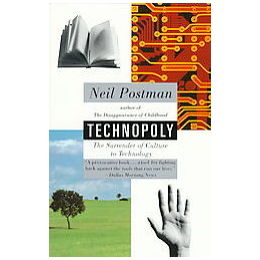[contextly_auto_sidebar id=”9uyV3uaURenHexrSfUw92h6J4J7iuLD6″]
ONE of the most important stories of the week ran below the fold in New York Times Styles. “Statisticians 10, Poets 0” got at the relentless quantifying that digital technology has made possible. And the things that can’t be counted are fading from view. That would be fine, if so many of the things that matter, especially for the arts and culture, resisted quantification. Here’s Bruce Feiler:
In the last few years, there has been a revolution so profound that it’s sometimes hard to miss its significance. We are awash in numbers. Data is everywhere. Old-fashioned things like words are in retreat; numbers are on the rise. Unquantifiable arenas like history, literature, religion and the arts are receding from public life, replaced by technology, statistics, science and math. Even the most elemental form of communication, the story, is being pushed aside by the list.
He continues: “The results are in: The nerds have won. Time to replace those arrows in the talons of the American eagle with pencils and slide rules. We’ve become the United States of Metrics.”
 This development has all kinds of implications not just for culture, but for journalism as well. In education coverage, it means that schools and teachers are students assessed using purely numerical indexes, which fatally simplifies what learning is about. In cultural coverage, it means the rise of box office scores at the expense of more thoughtful stories; it means trying to describe the success of a theater or classical musical group by describing its finances and not artistic criteria.
This development has all kinds of implications not just for culture, but for journalism as well. In education coverage, it means that schools and teachers are students assessed using purely numerical indexes, which fatally simplifies what learning is about. In cultural coverage, it means the rise of box office scores at the expense of more thoughtful stories; it means trying to describe the success of a theater or classical musical group by describing its finances and not artistic criteria.
What makes one musician or novelist (or poet) more substantial than another has little to do with quantification.
We have culture, after all, because some things — some part of being human — cannot be described entirely with numbers.
The explosion of Big Data and computerized tools has made some wonderful work possible. ProPublica, among others, does valuable work that it could not have in an earlier generation. But important subjects get overlooked when we think numbers can tell the whole story. Data is useful, but it needs intelligent interpretation and context.
Often I have people — typically smart and informed people — tell me that technology, digital or otherwise, is “just a tool.” But tools are not neutral — they shape how we use them and how we behave. The media critic Neil Postman wrote wonderfully about how various technologies — the horse stirrup, the telescope, the clock, the printing press — shaped the societies around them. They produced winners and losers. And we can’t let the intangible disappear without a fight.
ALSO: There a good story on IndieWire about the importance of net neutrality to independent filmmakers, and what they’ll lose if it’s compromised in a corporate takeover.
Similarly, economics columnist David Lazarus writes that despite all the hype, consumers will lose with the AT&T/DirecTV merger. My guess is that “content providers” like the cable companies that bring us shows could pay a price as well.
FINALLY: Music and the performing arts have always been about looks as well as talent. But has the balance gone too far toward an artist’s appearance? A story in the UK’s Independent, on the BBC Young Musicians program, argues it has: “The trouble is that making formula TV seems antithetical to the notion of making good music – and there is no doubt about which is taking priority.” The piece goes on:
The tired TV formula backfires, too. There’s much emphasis on musical and eye-candy-like star presenters, thus far the trumpeter Alison Balsom and the guitarist “Milos” – but they are out of their comfort zone, especially poor Milos, who seems wooden as can be. The judges are introduced with grim, scowling images and doom-laden jingle. Yet these expert jurors are not Simon Cowell. They are mostly kind, wise and mild-mannered. The mismatch of style and content is worthy of a Bugs Bunny cartoon.
I’ll continue to track this topic.
